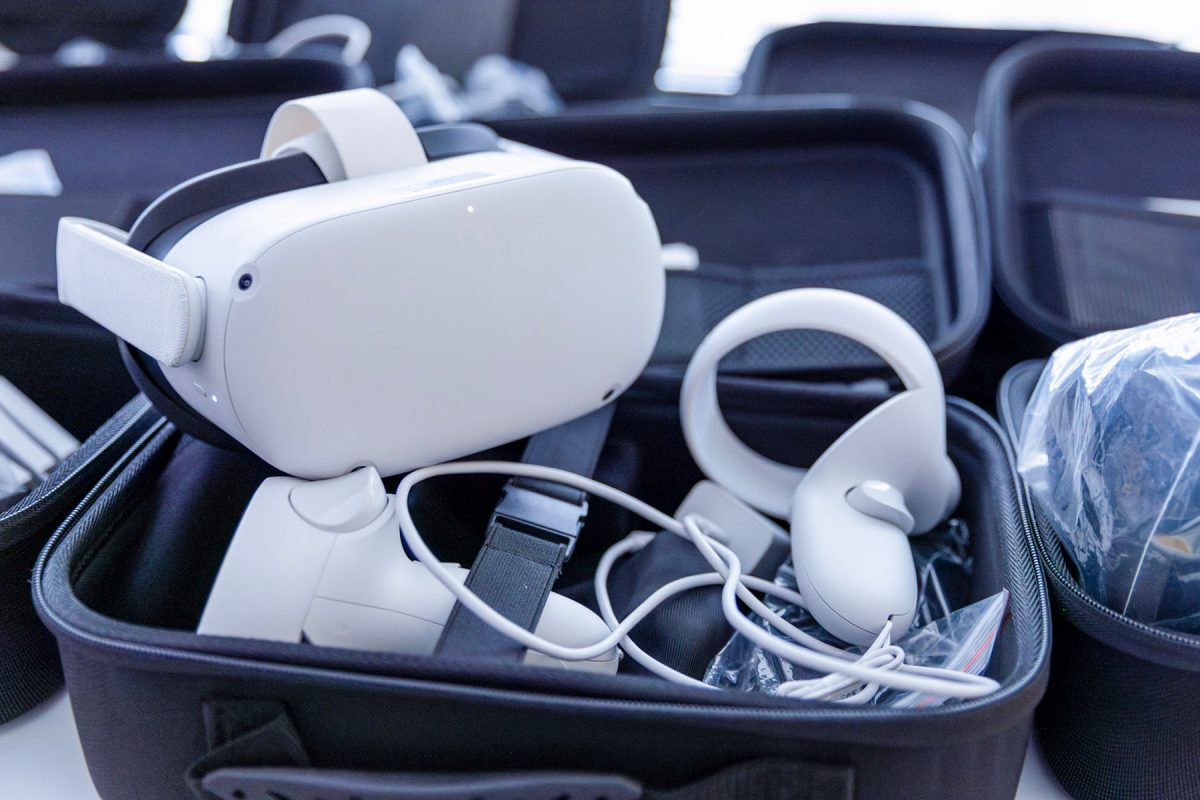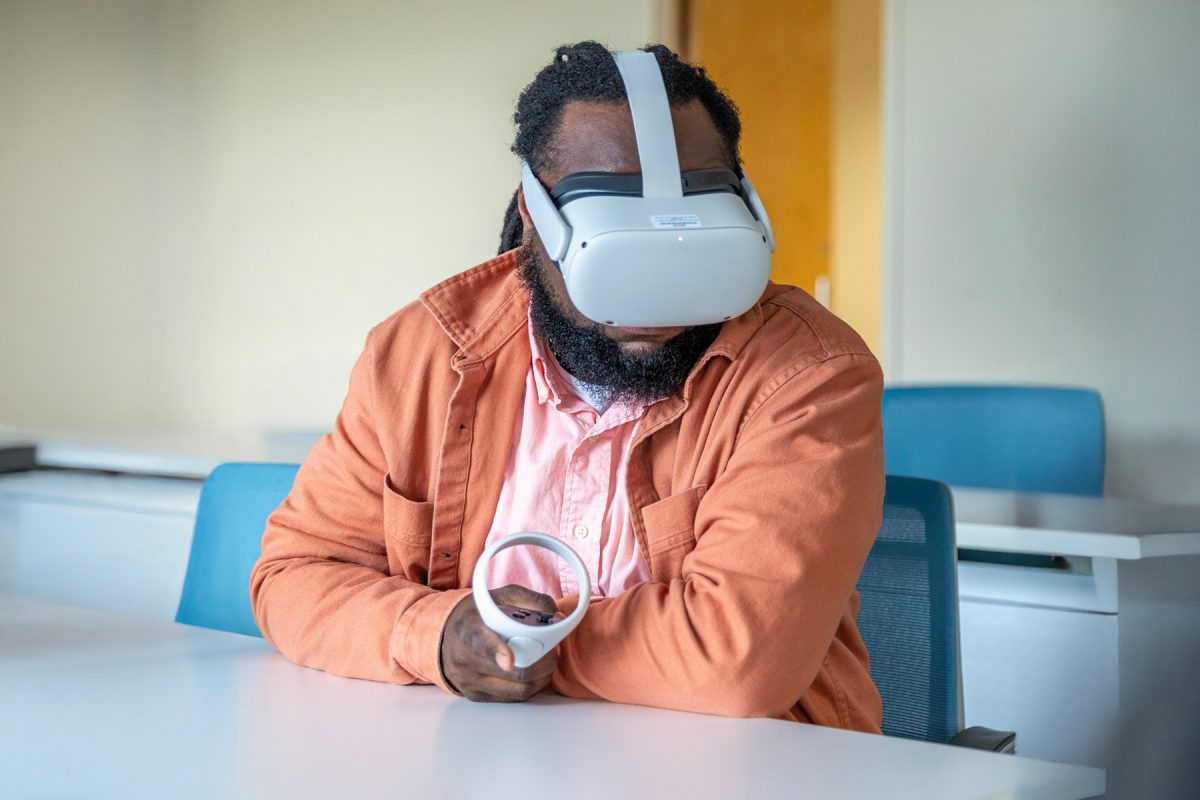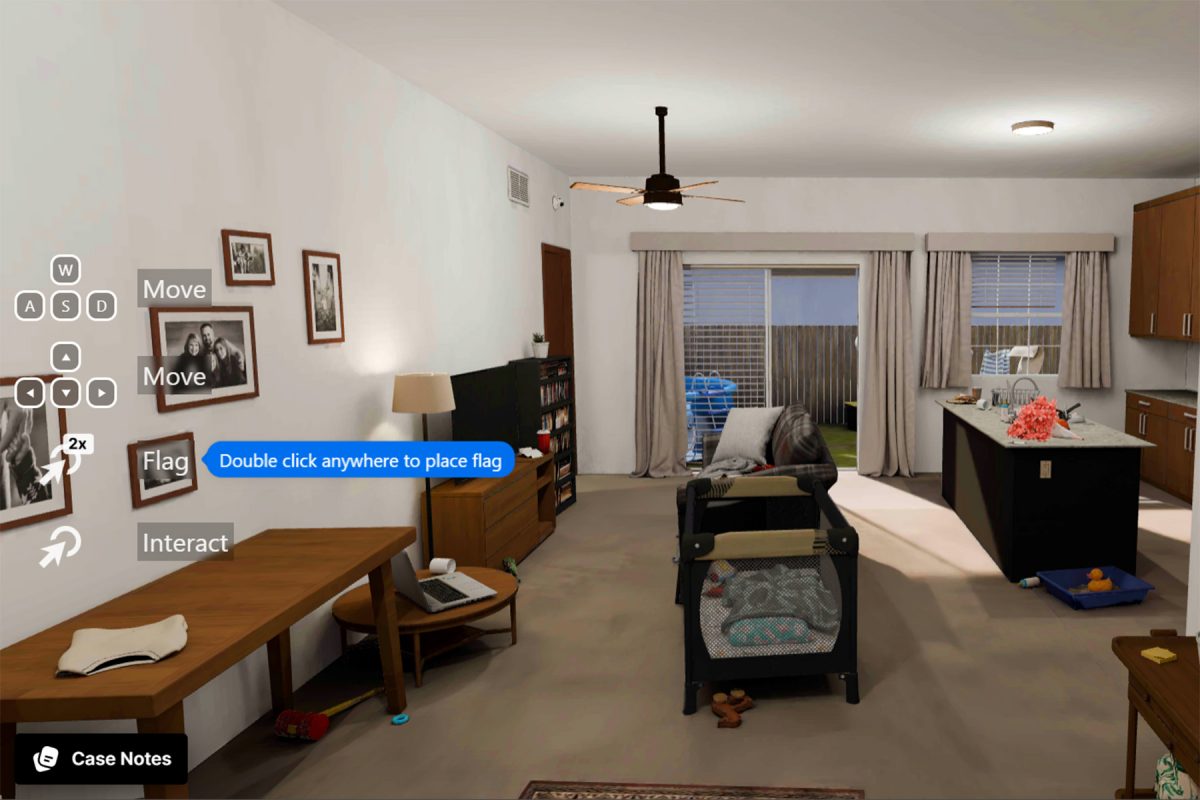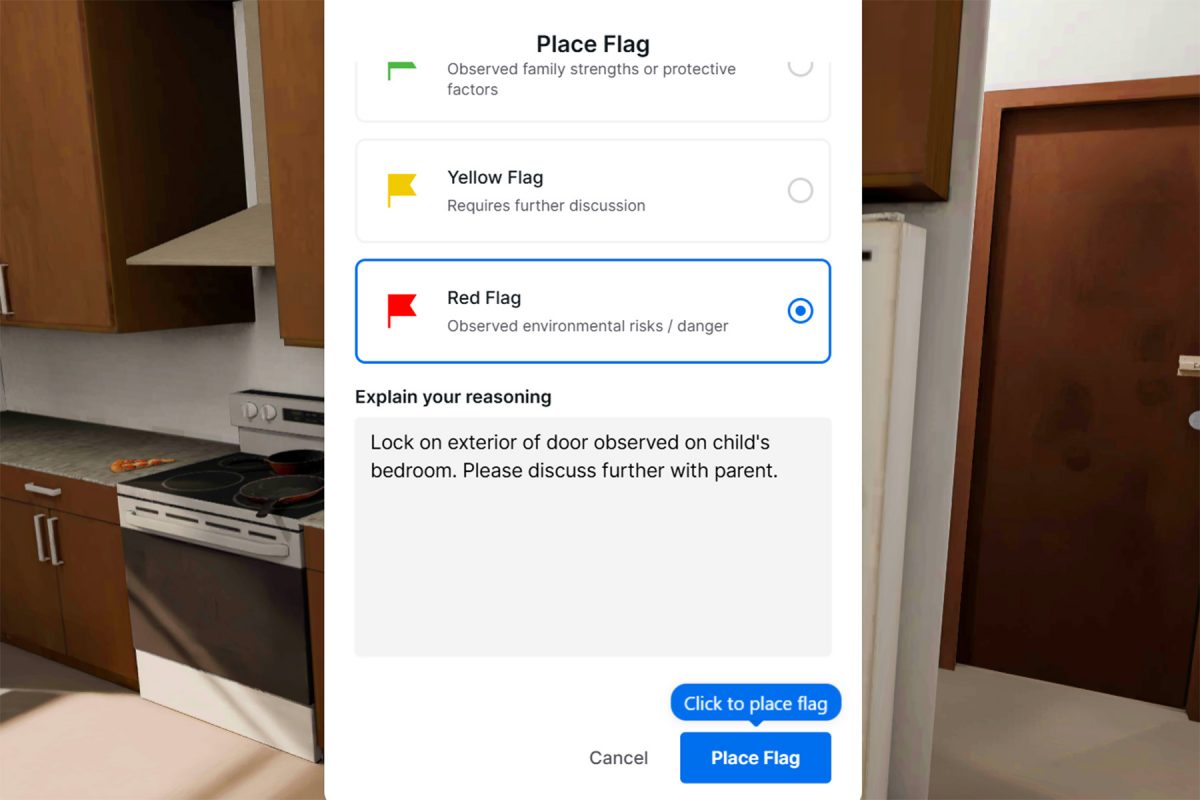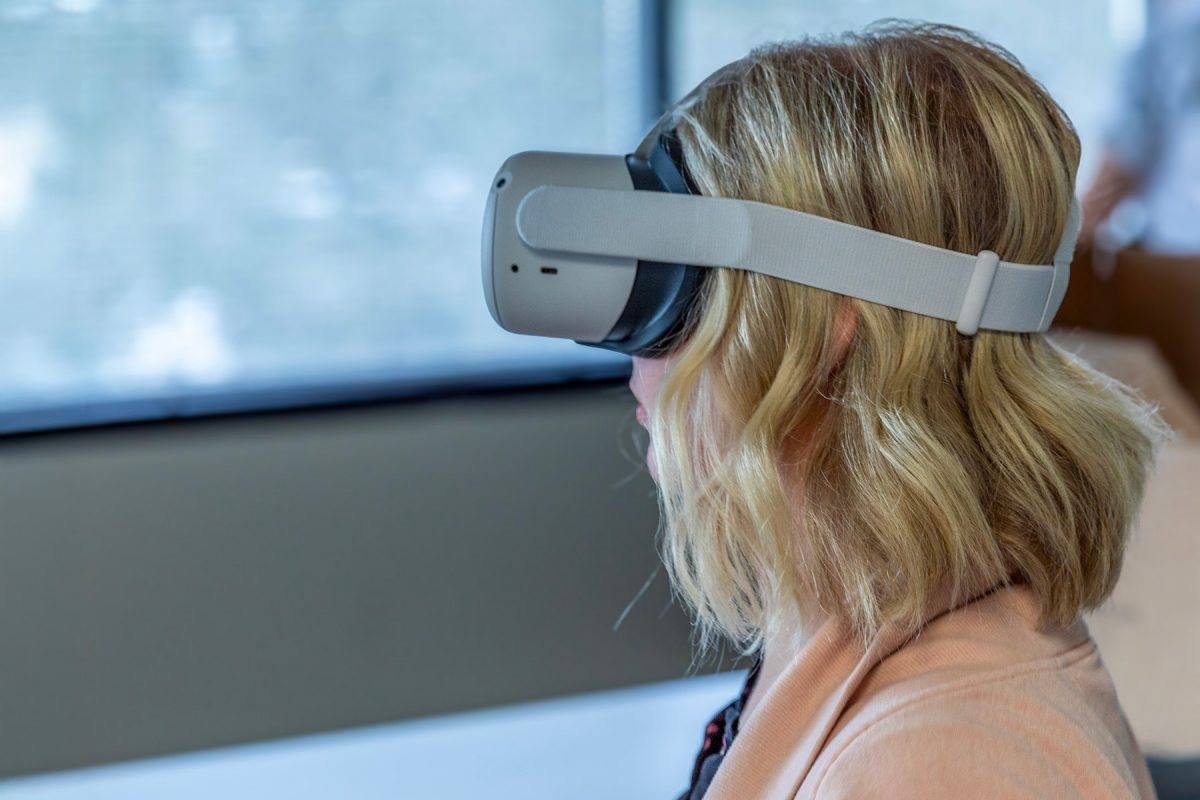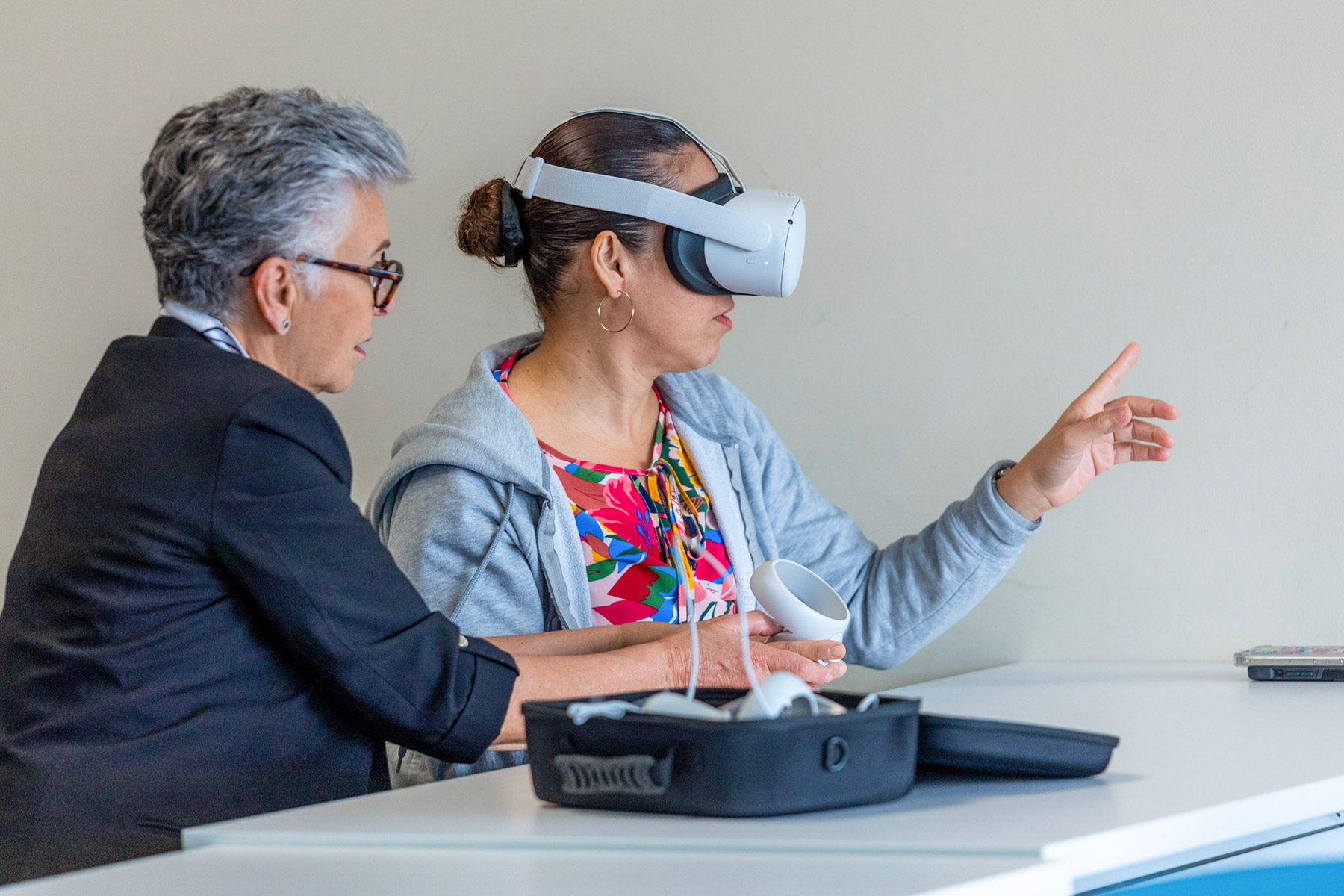
Child welfare professionals and Florida State University College of Social Work students often face challenges in developing the necessary skills for effective observation and interviewing in real-world settings.
Now, FSU’s Information Technology Services (ITS), in collaboration with the Florida Institute for Child Welfare, (FICW) is launching a virtual training solution that can enhance practical skills through an immersive AI-powered tool that supports the educational journey of higher-education students and pre-service child welfare investigators and case managers.
“This innovation is a crucial advancement for our social work students, as it provides them with the practical skills and experience needed to excel in their future careers through a virtual platform,” said David Springer, dean of the College of Social Work. “By offering a realistic and immersive training tool, we are ensuring that our students are well-prepared to make a meaningful impact in the field of child welfare and social work.”
This new immersive experience creates a safe and controlled space for students to focus on observable environmental factors within a home. This includes various elements that simulate real-world scenarios involving allegations of abuse or neglect, offering various learning experiences based on real-world intake reports provided by the Florida Department of Children and Families’ Abuse Hotline.
To ensure the design of the virtual home is both realistic and effective, a workgroup comprised of Department of Children and Families investigators, community-based care case management trainers, higher education faculty and individuals with lived expertise was established.
“By simulating real-world scenarios, we can provide a safe and controlled environment for students to develop critical observation and interviewing skills,” said Kristina Finch, project director and associate director of professional development at the Florida Institute for Child Welfare. “Bridging the gap between theoretical knowledge and practical application ensures that individuals are well-prepared for real-world scenarios. This approach not only enhances students’ practical skills but also ensures they are well-equipped to make meaningful contributions in the field of child welfare.”
This virtual environment emphasizes the university’s dedication to student success and educational excellence, while also adapting to ever-changing technologies to ensure students are always at the forefront of their field.
“The university’s commitment to equipping its students with innovative tools has significantly enhanced their learning and preparedness for real-world challenges in child welfare,” said Jonathan Fozard, associate vice president and chief information officer at FSU. “Florida State University has a mission and a purpose to lead in research, including in the area of artificial intelligence and technology innovation. By leveraging the latest tools and capabilities, we aim to set the trend and help others across the country and the globe follow our lead.”
“Florida State University has a mission and a purpose to lead in research, this including in the area of artificial intelligence and technology innovation. By leveraging the latest tools and capabilities, we aim to set the trend and help others across the country and the globe follow our lead.”
— Jonathan Fozard, associate vice president and chief information officer at FSU
The training program’s goal is to enhance professionals in this field and students’ knowledge, critical thinking and interviewing skills. Intermediate outcomes include real-world application of skills, increased confidence and better decision-making, ultimately leading to improved child welfare practices and sustainable training.
“This technology represents a significant advancement in our educational mission, fostering a new generation of professionals who are ready to excel in their careers and make a positive impact on society,” Finch said. “By integrating cutting-edge AI into educational practices, we set a new standard for immersive learning experiences.”
This technology was developed in partnership with MeetKai, a company specializing in AI-powered solutions and intelligent wearables, aimed at enhancing digital workspaces and creating immersive experiences.
“Within ITS, we’re constantly striving to look for ways to contribute to the university’s educational mission, helping people learn and engage through both experiential learning and traditional classroom settings,” said Rebekah Dorn, senior director of strategy & outreach at ITS.
For additional information regarding other virtual reality preservice training methods used at the Florida Institute for Child Welfare, visit ficw.fsu.edu.




